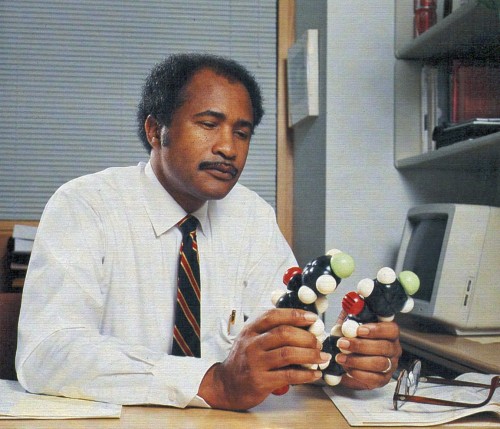#civil rights era
A recent episode of Malcolm Gladwell’s podcast, Revisionist History, delves into the unfair dismissals of black teachers after the Supreme Court’s ruling in Brown v. Board of Education. Gladwell pieces together a narrative drawn extensively from archival sources, including oral histories from Duke University Library’s collection: “Behind the Veil: Documenting African-American Life in the Jim Crow South.”
Gladwell explains that as school systems consolidated, white educators kept their teaching or administrative positions and black educators were fired in many cases or pushed out through marginalization. The National Education Association (NEA), as an advocate for the fair hiring practices of educators, drew attention to this inequity through the dissemination of reports, lawsuits, and statistics for decades after the ruling. The archives of the NEA are held by GW Libraries Special Collections and contain details of this injustice.
After our NEA Archivist, Vakil Smallen, heard the episode he immediately went to the collections to look for further original documentation of what Gladwell described. He found many sources and over the next few weeks we will share examples on our Tumblr.
TheNEA Task Force on School Desegregation in Louisiana wrote a report in 1970,16 years after the Court’s ruling, that details the many and varied accounts of black teachers being humiliated into quitting if they were not outright fired.
What follows are some of the examples of the mistreatment endured by educators of color in the Louisiana public school system documented in this 1970 report:
- Former administrators being demoted to teaching or janitorial positions in newly integrated schools.
- In one case, an elementary school principal with 27 years of experience was asked to teach a subject he was not certified in and he was later terminated on the grounds that he was unqualified to properly instruct on this subject.
- Some accounts detail former principals being reduced to offices in closets or given menial tasks such as being put in charge of attendance or distributing textbooks instead of leading schools.
- Black teachers were far less likely to receive the school assignment of their choice and had to accept assignment to an unwanted school or quit.
- Black teachers were instructed that they could not discipline white students for misbehavior.
Images above:
1. Photograph taken from the December, 1967 issue of the Southern Education Report.
2. Report Snapshot: Sample text from the NEA’s report on Desegregation in Louisiana
3. Headline taken from the Oct. 6, 1968 issue of The Advocate, a Baton Rouge based paper serving the entire state.
Post link
We’re excited to announce that tonight, February 24, Hagley, in partnership with Clark Atlanta University and Bloomfield College, will be premiering Dr. Wesley Memeger, Jr., Science Into Art, a special documentary chronicling the life of Dr. Wesley Memeger, Jr.
Memeger was a long-time DuPont chemist at the Pioneering Research Laboratory. He began working for DuPont’s Pioneering Research Laboratory in 1964 and continued his career there until his retirement in 1997. His research enabled the company to streamline the production of Kevlar, a synthetic fiber developed at DuPont by Stephanie Kwolek in 1965, by discovering a faster polymerization process to help scale for industrial production. Memeger and his wife, a fiber artist, are also accomplished artists, with Memeger’s work taking inspiration from the geometric shapes found in molecular compounds.
The 40-minute documentary covers Memeger’s career and his own personal history. He discusses his childhood as son and grandson of farmers in St. Augustine during the Jim Crow era, the role of his two African American chemistry professors at Clark College, an HBCU, in contributing to his success as a scientist, and addresses the challenges of being a one of the DuPont’s company’s first Black scientists with a doctorate in chemistry during the civil rights era. His reflections on his remarkable career are the first of what Hagley hopes will be a number of oral history interviews with Black pioneers in the STEM professions in the Delaware area.
The documentary will premiere on YouTube at 7 p.m. EST on our YouTube channelandon this website on February 24 and will be hosted by Dr. Jeanne Nutter, Professor of Media Communications at Bloomfield College and an award-winning oral historian. We hope you can join us to celebrate Memeger’s many accomplishments spanning his career at DuPont.
Post link



